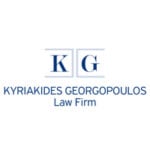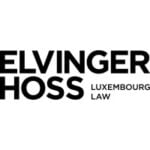-
Climate – the law governing operations that emit Greenhouse Gases (e.g. carbon trading) is addressed by Environment and Climate Change international guides, in respect of ESG: a. Is there any statutory duty to implement net zero business strategies; b. Is the use of carbon offsets to meet net zero or carbon neutral commitments regulated; c. Have there been any test cases brought against companies for undeliverable net zero strategies; d. Have there been any test cases brought against companies for their proportionate contribution to global levels of greenhouse gases (GHGs)?
Directive (EU) 2022/2464 of 14 December 2022 on Corporate Sustainability Reporting (CSRD) imposes an obligation on certain companies to provide information on their sustainability practices. The CSRD was transposed into French law by Ministerial Order No. 2023-1142 of 6 December 2023. A Decree No. 2023-1394 was also published on 30 December 2023, with the aim of specifying the information to be included in the “sustainability report”.
Pursuant to Article L. 232-6-3 of the French Commercial Code, large companies include sustainability information in a separate section of their management report (this separate section is called “sustainability report”). This information makes it possible to understand the impact of the company’s activity on sustainability issues, as well as how these issues influence the development of its business, its results and its situations. “Sustainability issues” include environmental, social and corporate governance issues.
The sustainability report must inter alia include information about the company’s time-bound sustainability objectives and progress towards these objectives, including, where appropriate, absolute greenhouse gas emission reduction targets for at least 2030 and 2050. This information should be accompanied by a statement indicating whether these objectives are based on scientific evidence (Article R. 232-8-4 of the French Commercial Code).
In this respect, it must be noted that from 2024, the Sustainability Report replaces the Non-Financial Performance Statement, introduced by the Non-Financial Reporting Directive (NFRD).
The 2020/852 Taxonomy Regulation of 18 June 2020, which is part of the goal of carbon neutrality by 2050 set out in the European Green Deal, naturally also applies in France. This Regulation outlines the criteria for determining whether an economic activity qualifies as an environmentally sustainable investment. The Taxonomy Regulation objectives focus on climate change mitigation and pollution prevention control, which includes carbon neutral commitments.
Furthermore, companies with at least 500 employees are required to draw up a balance sheet of their greenhouse gas emissions, which is updated every four years (Articles L. 229-25 and R. 229-46 to R. 229-50-1 of the French Environmental Code). To measure the various greenhouse gas emissions, the French Environment and Energy Management Agency (ADEME) uses a calculation based on “physical” (i.e. the quantity of CO2 that is emitted by one unit consumed) or “monetary” (i.e. the quantity of CO2 that is generated by a product or a service relative to its price) emission factors.
Carbon offsetting in France is mainly regulated by EU Law, in particular by the EU Emissions Trading Scheme (EU ETS). Launched in 2005, the EU ETS was established under the Kyoto Protocol and is governed by Directives 2003/87/EC and 2004/101/EC, supplemented by Directives 2008/101/EC, 2009/29/EC and Regulation 1031/2010. More specifically, Directive 2003/87/EC was transposed into French law through Articles L. 229-5 et seq. of the French Environmental Code. The carbon market covers sectors such as electricity and heat production, heavy industry (including refineries, steel, cement, and chemical production), as well as aviation and shipping companies, subject to certain conditions.
To our knowledge, no test case has yet been brought against companies for undeliverable net zero strategies. There are, however, some cases brought before the French Courts on the ground of French Law No. 2017-399 of 27 March 2017 on the duty of vigilance. Since Signature Litigation is involved in one of these cases, it is unable to make any comment on them.
To date, there has been no case law nor action to hold French companies liable on the grounds of their proportional contribution to global levels of greenhouse gas emissions. This can be explained by the fact that claimants would eventually have to rely either on strict liability regime or on a tort liability regime, for which causation must be established, which would be rather difficult.
-
Biodiversity – are new projects required to demonstrate biodiversity net gain to receive development consent?
The environmental assessment of projects, governed by Articles R. 122-1 et seq. of the French Environmental Code, which transposes Directive 2011/92/EU, aims to design projects that minimize environmental impact.
Projects falling under one or more categories listed in the table attached to Article R. 122-2 of the Environmental Code are subject to an environmental assessment. These include, for instance, wind farm projects, integrated iron and steel works, and the construction of highways and expressways, among others.
The environmental assessment involves an impact study conducted by the project owner, the content of which is defined by Article R. 122-5 of the French Environmental Code and includes a comprehensive analysis of the project’s impact on biodiversity. The study is followed by an opinion issued by an environmental authority. Both the study and the opinion are considered when granting project authorization by the relevant local authority or competent state department.
-
Water – are companies required to report on water usage?
Following Article R. 232-8-4 of the French Environmental Code, large companies must inform on their sustainability strategies. The norm ESRS (European Sustainability Reporting Standards) E3, which is part of the CSRD, regulates the information that companies must disclose in their sustainability report with regard to water and marine resources.
More specifically, ESRS E3 aims to provide stakeholders with a clear understanding of the company’s positive and negative impacts on water resources, the preventive or corrective actions implemented to manage these impacts, the company’s contribution to the ambitions of the European Green Deal, the blue economy and sustainable fishing, and the risks and opportunities related to dependencies on aquatic/marine resources and their financial effects.
-
Forever chemicals – have there been any test cases brought against companies for product liability or pollution of the environment related to forever chemicals such as Perfluoroalkyl and Polyfluoroalkyl Substances (PFAS)?
Legal action has been ongoing in France’s Lyon region since May 2022, initiated by residents, associations, trade unions, and municipal authorities.
In 2022, a group of environmental associations and individuals initiated environmental summary proceedings (référé pénal environnemental) against Arkema France, because of the alleged contamination of the Rhône area with Perfluoroalkyl and Polyfluoroalkyl Substances (PFAS). The summary proceedings, which sought the immediate limitation of PFAS discharges and the launch of an analysis campaign to assess the extent of the contamination, was dismissed by the Court in first instance and appeal. The plaintiff associations and individuals have challenged the Court of Appel’s decision before the French Supreme Court (Cour de cassation). A hearing was held on 11 February 2025 and the decision is expected to be handed down in April 2025.
In May 2022, the mayor of Pierre-Bénite, a commune in Lyon, filed a complaint against an unknown person for PFAS pollution, citing risk to public safety. A judicial investigation began in July 2023 to assess the allegations and identify responsible parties. By 30 October 2023, 34 local authorities, six fishing associations and 35 individuals joined the case, addressing concerns about endangerment of lives, violations of chemical substance regulations, ecocide allegations, and groundwater contamination. In July 2024, additional associations and individuals filed civil suits. The investigation is ongoing and expected to take several years.
Several cases are also pending before the Lyon administrative courts, challenging prefectural authorizations for facility expansions by Arkema and Daikin. The commune of Oullins-Pierre-Bénite and associations are requesting suspension and annulment of these authorizations. In the Daikin’s case, the Lyon Administrative Court is examining an appeal regarding environmental impact assessments, while Arkema’s appeal is still pending.
Additionally, on 19 March 2024, the City of Lyon and related entities filed legal proceedings against Daikin and Arkema for contamination of the Ternay water well. Summary expert operations were ordered, focusing on PFAS emissions and their environmental impacts. The Court-appointed expert panel is expected to report in 2026.
Furthermore, France enacted Law No. 2025-188 on 17 February 2025 to protect the public from PFAS exposure, prohibiting the manufacture and sale of PFAS-containing products, with specific exemptions and monitoring protocols. The law also mandates public access to information on PFAS-emitting sites.
These latest developments will undoubtedly lead to new legal actions against companies for PFAS-related environmental pollution.
-
Circularity – a. The law governing the waste hierarchy is addressed by the Environment international guide, in respect of ESG are any duties placed on producers, distributors or retailers of products to ensure levels of recycling and / or incorporate a proportionate amount of recycled materials in product construction? b. Are any duties placed on producers, distributors or retailers of products to handle the end-of-life of the products placed on the market?
Law No. 2020-105 of 10 February 2020 (the “Anti-Waste” law) introduced a number of measures to promote a circular economy based on recycling channels and extending product lifespans. To this end, producers falling under the Extended Producer Responsibility (EPR) scheme are required to develop and implement a prevention and eco-design plan with the objective of reducing the use of non-renewable resources, increasing the use of recycled materials and increasing the recyclability of their products.
For instance, according to Article L. 541-9 of the French Environmental Code, certain products and materials must incorporate a minimum rate of recycled material, except for materials derived from renewable raw materials and provided that the impact is positive for the environment. For example, the recycled plastic content of beverage bottles composed predominantly of polyethylene terephthalate by mass must be at least 25% (Article D. 543-45-2 of the French Environmental Code). This rate has been set at 30% for 2030.
In this regard, it is important to note that the Ecodesign for Sustainable Products Regulation (ESPR), which entered into force on 18 July 2024, is directly applicable in France. This Regulation aims to increase recycled content for almost all categories of physical goods. The European Commission is expected to adopt the first ESPR working plan by 19 April 2025, setting out which products will be prioritised over the coming years. According to the ESPR, the Commission shall prioritise products such iron and steel, aluminium, textiles, furniture, tyres, chemicals, and electronics (Article 18 of the ESPR).
As for the end-of-life of products, Articles L. 541-10 et seq. of the French Environmental Code establish the EPR scheme, which is based upon the “polluter pays” principle and is applicable to specific sectors. Companies falling under that scheme are responsible for the disposal of waste generated by the products they placed on the French market. In practice, the responsibility is passed on to eco-organisations to which companies pay a contribution so that they can handle waste management and organize its recycling.
-
Plastics – what laws are in place to deter and punish plastic pollution (e.g. producer responsibility, plastic tax or bans on certain plastic uses)?
The Anti-Waste law provides for a total halt to single-use plastics in France by 2040. To achieve this, targets for reduction, reuse, and recycling (“3R”) objectives are set and updated every five years to reach this goal. Decree No. 2021-1610 of 29 April 2021 sets the targets for the period 2020-2025, consisting of 20% reduction in single-use plastic packaging by the end of 2025, 100% reduction in unnecessary single-use plastic packaging, and 100% recycling of single-use plastic packaging by the end of 2025.
In the meantime, certain products have been banned from sale, such as straws, disposable cutlery and all oxo degradable plastic objects. In addition, Law No. 2020-105 also set a goal of reducing the number of single-use plastic beverage bottles placed on the market by 50% by 2030. This law also provides that producers of plastic packaging that cannot be recycled at the end of its life are subject to penalties. The Directorate-General for Competition, Consumer Affairs and Fraud Prevention (“DGCCRF”) conducts regular investigations to verify the application of these bans.
-
Equality Diversity and Inclusion (EDI) – what legal obligations are placed on an employer to ensure equality, diversity and inclusion in the workplace?
Pursuant to Articles L. 1132-1 et seq. of the French Labor Code, all forms of discrimination based on origin, race, sex, sexual orientation, gender identity, age, family and pregnancy status, genetics, political opinions, trade union activity, religion, name and surname, place of residence, state of health, and disability are prohibited.
For instance, the French Labor Code contains a specific section dedicated to professional equality between men and women. This section provides for several requirements, such as:
- The prohibition of any sexist behavior that may create a hostile environment (Article L. 1142-2-1 of the French Labor Code);
- The consideration by the employer of the objective of eliminating gender pay gap (Article L. 1142-7 of the same Code);
- In companies with more than 50 employees, the obligation of the employer to publish a set of indicators annually relating to gender pay gaps, and the measures implemented to eliminate them (Article L. 1142-8 of the same Code, as amended by Law No. 2021-1774 of 24 December 2021 on the acceleration of economic and professional equality, known as the “Rixain Law”);
- In companies employing at least 1,000 employees for the third year running, the obligation for the employer to publish an annual report on any gaps in the representation of women and men among executives and management bodies (Article L. 1142-11 of the same Code, as amended by the “Rixain Law”). According to the Rixain law, companies will have to achieve a minimum target of 30% gender diversity among senior managers of governing bodies from 1 March 2027. This rate will be increased to 40% from 1 March 2030.
Moreover, the Law No. 2023-623 of 19 July 2023, aimed at strengthening women’s access to positions of responsibility in the service, raises the mandatory quota for the first appointment of women to senior and management positions to 50% and introduces an Index of Professional Equality in the civil service.
In addition to the provisions relating to professional equality between men and women, specific provisions are also in place for disabled workers. For instance, pursuant to Article L. 5212-2 of the French Labor Code, disabled employees must represent at least 6% of the workforce of companies with more than 20 employees. Such companies have 5 years to comply with this requirement once the threshold is met. If the company does not respect this rate, it must pay an annual financial contribution.
-
Workplace welfare – the law governing health and safety at work is addressed in the Health and Safety international guide, in respect of ESG are there any legal duties on employers to treat employees fairly and with respect?
Pursuant to Article L. 4121-1 of the French Labor Code, employers shall take the necessary measures to ensure the safety and protect the physical and mental health of their employees.
The French Labor Code also recognises the right to dignity in the workplace and prohibits harassment. According to Article L. 1121-1, no one may restrict the rights of individuals or individual and collective freedoms which are not justified by the nature of the task to be performed or proportionate to the aim sought.
Additionally, Article L. 1142-2-1 of the French Labor Code prohibits behaviours related to a person’s sex that may lead to the creation of an intimidating, hostile, degrading, humiliating or offensive environment.
-
Living wage – the law governing employment rights is addressed in the Employment and Labour international guide, in respect of ESG is there a legal requirement to pay a wage that is high enough to maintain a normal standard of living?
Pursuant to Articles L. 3231-2 et seq. of the French Labor Code, employees must be paid a minimum hourly wage called the “minimum interprofessional growth wage” (“SMIC”). This wage is indexed to inflation and is revised automatically on 1 January of each year. It is also automatically revised during the year if inflation exceeds 2% since the last revision and upon discretionary decision of the French authorities.
In companies with more than 50 employees, a general negotiation on wages must be undertaken at least every 4 years as part of the “compulsory annual negotiations”.
In each sector of activity, trade unions negotiate with employers a “collective agreement” (convention collective), a sector-specific agreement that may include more advantageous pay conditions than those granted by the law. A similar agreement may be concluded within a company and will prevail, except for compulsory provisions and exclusion clauses, over the collective agreement.
-
Human rights in the supply chain – in relation to adverse impact on human rights or the environment in the supply chain: a. Are there any statutory duties to perform due diligence; b. Have there been any test cases brought against companies?
Law No. 2017-399 of 27 March 2017 on the duty of vigilance of parent companies and ordering companies introduced due diligence obligations in the French Commercial Code (Article L. 225-102-1) for certain large companies, which must draw up and effectively implement a vigilance plan. This plan must include reasonable due diligence measures to identify risks and prevent human rights and environmental abuses, including those committed by direct or indirect subsidiaries, in France or abroad.
Law No. 2017-399 applies to certain types of public limited companies established in France with at least 5,000 employees within the company head office and its direct and indirect subsidiaries, whose head office is located in France, or at least 10,000 employees within the company and its direct and indirect subsidiaries, whose head office is located in France or abroad.
Companies falling under the scope of the Law may be held liable in the event of failure to comply with these due diligence obligations. The competent court is the Paris Civil Court, and it is also possible to initiate summary proceedings before this Court.
Around twenty cases have been initiated on the ground of French Law No. 2017-399 of 27 March 2017 on the duty of vigilance. Since Signature Litigation is involved in one of these cases, it is unable to make any comment on them.
It must be noted that France was ahead of the Corporate Sustainability Due Diligence Directive (CSDDD), which aims to regulate the duty of care of companies at the European level.
-
Responsibility for host communities, environment and indigenous populations – in relation to adverse impact on human rights or the environment in host communities: a. Are there any statutory duties to perform due diligence; b. Have there been any test cases brought against companies?
As further developed in question 10. a), companies subject to the Law No. 2017-399 of 27 March 2017 on the duty of vigilance must establish a vigilance plan, which aims to identify and prevent risks associated with their activities or those of their foreign subsidiaries, such as risks of human rights or environmental impacts in host communities.
Around twenty cases have been brought before the French Courts on the grounds of French Law No. 2017-399 of 27 March 2017 on the duty of vigilance. Since Signature Litigation is involved in one of these cases, it is unable to make any comment on them.
-
Have the Advertising authorities required any businesses to remove adverts for unsubstantiated sustainability claims?
Under French law, advertising authorities have no power to impose sanctions for unsubstantiated sustainability claims. This being said, some soft law sources publish recommendations on misleading advertising and commercial practices.
The French National Consumer Council (Conseil National de la Consommation), for instance, published the 2023 edition of its guide on environmental claims, in which it provides guidance on the criteria used to determine whether a claim is misleading.
In addition, in April 28, 2020, the Professional Advertising Regulation Authority (Autorité de Régulation Professionnelle de la Publicité or “ARPP”) issued a new recommendation on sustainable development advertising which prohibits misleading, deceptive or non-conforming advertising regarding the advertiser’s sustainable actions or on the properties of the advertised product. According to this recommendation, an advertiser must always be able to justify its environmental claims and its impact on sustainable development.
In its 2023-2024 report, the ARPP, in collaboration with ADEME, highlighted a growing awareness of the need for more responsible advertising, as evidenced by the compliance rate, which is of 93.6%, compared with 92.4% in the previous report. However, it also stresses that significant challenges remain, especially in the accuracy of language and the proportionality of messages.
-
Have the Competition and Markets authorities taken action, fined or prosecuted any businesses for unsubstantiated sustainability claims relating to products or services?
Claims against companies for unsubstantiated claims concerning products or services fall within the scope of Article L. 121-2 of the French Consumer Code, which prohibits misleading commercial practices. On this ground, the General Directorate for Competition, Consumption and Fraud Control (Direction Générale de la concurrence, de la consummation et de la repression des frauds or “DGCCRF”) has the power to impose sanctions on companies making false or misleading claims in favour of sustainable development. These sanctions may include warnings, injunctions to cease and withdraw the unsubstantiated claim, infringement reports, etc. Sanctions may also take the form of penalties of up to 80% of the turnover over the last three years (Article L. 132-2 of the French Consumer Code).
Although the authority has a power of Name & Shame, most of these decisions remain confidential. In its 2023 report, the DGCCRF revealed that out of 1,100 establishments inspected, a quarter were found to be non-compliant, such as claims that were unjustified, imprecise, ambiguous, or even contrary to legal provisions. The DGCCRF therefore issued 141 warnings, 114 injunctions and filed 18 criminal or administrative proceedings to put an end to practices that were misleading for consumers. The most serious practices were reported and referred to the courts.
-
Have there been any test cases brought against businesses for unsubstantiated enterprise wide sustainability commitments?
In recent years, there has been an increase in the number of cases brought by non-governmental organisations (NGOs) against French companies on the grounds of misleading commercial practices, including allegations on the environmental impact of products, prohibited by Article L. 121-2 of the French Consumer Code. These companies include, inter alia, TotalEnergies, Adidas and New Balance.
The Olympic Games in Paris also opened a forum for plaintiffs in the field of greenwashing. One of the most notorious legal actions was that of the association France Nature Environnement (FNE) against Coca-Cola. In this case, Coca-Cola had publicly committed to reducing packaging by offering reusable cups to consumers, but it turned out that most of these cups were filled from plastic bottles of soda. Thus, FNE filed a complaint in November 2024 before the Nanterre Civil Court for misleading commercial practices or “greenwashing” against Coca-Cola.
It is important to note that, in March 2023, the European Commission issued a proposal for a Directive on substantiation and communication of explicit environmental claims (Green Claims Directive) which, if adopted, would create a legal framework for environmental claims and would certainly increase the number of court claims on this ground in all Member States of the EU.
-
Is there a statutory duty on directors to oversee environmental and social impacts?
Articles 1833 of the French Civil Code and L. 225-35 of the French Commercial Code require directors to consider the impact of social and environmental issues in the decision-making process. They must encourage the company and its executives to pay a fair and reasonable attention to these issues, in relation to the other considerations that must be taken into account in the management of the business. This is however a mere best effort obligation as non-compliance with this requirement cannot lead to the nullity of the acts or deliberations of the bodies of the company.
For limited companies, the board of directors determines the ESG strategy of the company and the means to implement such a strategy. In practice, the board of directors now makes sure that ESG issues are at the heart of the company’s strategy and will usually appoint a specialised board committee dedicated to monitoring ESG issues.
Even if to date the audit committee is the only specialised committee of the board of directors whose tasks are regulated by the law, French companies tend to increase the number of specialised board committees. In practice, on top of the audit committee, remuneration and appointment committees are also widespread, especially in listed companies. Strategic and ethics committees dedicated to ESG issues are also increasingly common.
The board of directors has to make sure that the management board is fully involved in ESG issues. As for the management board, it makes sure that the company is able to comply with the relevant ESG regulations.
If a company has adopted a raison d’être in its bylaws, the board of directors is required, in performing its duties, to take into account such raison d’être. The raison d’être grasps the values of the company, the social and environmental impacts of its activity and more generally the responsibility that the company intends to carry in the future. As such, it results from Articles 1850 of the French Civil Code and L. 225-251 of the French Commercial Code that directors may be held liable towards the company and its shareholders for instance by taking insufficient account of the raison d’être, by failing to pursue the social and environmental objectives of the company, or by acting in contradiction with them, they cause damage to the company.
-
Have there been any test cases brought against directors for presenting misleading information on environmental and social impact?
We are not aware of any test case brought against directors for presenting misleading information on environmental and social impact before French Courts.
-
Are financial institutions and large or listed corporates required to report against sustainable investment criteria?
EU Regulations No. 2019/2088 of 27 November 2019 (“SFDR”) and No. 2020/852 of 18 June 2020 (“Taxonomy Regulation”) impose obligations applicable to certain economic operators carrying out financial activities, such as investment managers or investment funds, to provide transparent information on the environmental impact of their financial investments.
In this respect, Article 3 of the SFDR requires financial market participants and financial advisers to publish on their website information about their policies on the integration of sustainability risks in their investment decision-making process or investment or insurance advice. Likewise, Article 5 of the Taxonomy Regulation also obliges financial actors to disclose, in the pre-contractual documentation, the information considered to assess the sustainability criterion of the financial investment presented as favorable to sustainable development. The Taxonomy Regulation also specifies in Article 8 that the non-financial performance declaration to which companies are subject shall mention the way in which the financial activities carried out by the company, and the investments it makes, are taken into account to reduce the impact of these investments on climate change.
It ought to be noted that Article L. 533-22-1 of the French Monetary and Financial Code provides that portfolio management companies must include, in their sustainability risk policy, information on the risks related to climate change and the damage to biodiversity caused by their investments. Portfolio management companies must also make available to their subscribers and to the public a document setting out their policy on the inclusion in their investment strategy of ESG criteria and the means implemented to contribute to the energy and ecological transition, as well as a strategy for implementing this policy.
In addition, Ministerial Decree No. 2023-1394 of 30 December 2023, which specifies certain details of Order No. 2023-1142 of 6 December 2023 transposing CSRD into French law, introduced Article R. 232-8-4 in the French Commercial Code. This Article provides that the sustainability information that the companies must disclose shall describe the company’s plan, including actions taken or envisaged and related financial and investment plans, to ensure the compatibility of its business model and strategy with the transition to a sustainable economy, the limitation of global warming and the objective of climate neutrality.
-
Is there a statutory responsibility on businesses to report on managing climate related financial risks?
As further developed in Question 1, the CSRD, which has been implemented into French law through Ministerial Order No. 2023-1142 and Decree No. 2023-1394, requires certain companies to report on sustainability practices. Thus, large companies must include a “sustainability report” in their management report, detailing time-bound sustainability objectives, progress, and greenhouse gas reduction targets for 2030 and 2050, supported by scientific evidence where applicable. Accordingly, information on climate related financial risks must be included in the sustainability report.
-
Is there a statutory responsibility on businesses to report on energy consumption?
As explained above, large companies must include a “sustainability report” in their management report, detailing time-bound sustainability objectives, progress, and greenhouse gas reduction targets for 2030 and 2050, supported by scientific evidence where applicable.
Additionally, under Article L. 229-25 of the French Environmental Code, companies employing more that 500 employees in France must prepare a greenhouse gas emissions report. As part of this report, the company must describe its direct and indirect greenhouse gas emissions, which include the company’s energy consumption in its operation and production activities.
-
Is there a statutory responsibility on businesses to report on EDI and / or gender pay gaps?
Article L. 1142-8 of the French Labor Code requires companies with at least 50 employees to publish a Professional Equality Index. This index is calculated on the basis of several criteria, including the average pay gap between men and women. Depending on the criteria met, the company obtains a score that must be communicated each year to the Labor Inspectorate. The result is published on the Ministry of Labor website. Depending on the score obtained, the company may be asked to take certain measures in favor of EDI and equal wage.
Moreover, under the CSRD, companies must report if they have policies to prevent discrimination (including harassment) and promote equality, diversity, and inclusion. They need to specify if these policies cover reasons like race, gender, disability, age, religion, and other forms of discrimination defined by EU and national law. Companies must also share if they have specific commitments to support vulnerable groups and how these policies are implemented to prevent, address, and promote diversity and inclusion.
-
Is there a statutory responsibility to report on modern day slavery in the supply chain?
Any company with at least 5,000 employees in France (or 10,000 employees, including subsidiaries) must establish and implement a vigilance plan to identify and prevent inter alia human rights in its own operations and those of its subsidiaries, suppliers, and subcontractors. The vigilance plan and the report on its effective implementation are made public and included in the management report of the company (Article L. 225-102-1 of the French Commercial Code).
Additionally, on 25 July 2024, the Directive (EU) 2024/1760 on corporate sustainability due diligence (CSDDD) entered into force. This Directive establishes a corporate due diligence duty, the core elements of which are identifying and addressing potential and actual adverse human rights impacts in the company’s own operations, their subsidiaries and, where related to their value chain, those of their business partners.
-
Trends and developments – Where do you see the most significant legal developments in ESG in your jurisdiction in the next 12 months? Do you expect a rise in Court disputes or enforcement actions?
In the coming year, we anticipate significant legal developments in ESG to centre on two critical areas: the intensification of anti-greenwashing regulations and the expansion of corporate due diligence reporting requirements. Regarding this last point, the European Commission recognizes the significant obligations imposed by the CSRD. As a result, the Omnibus Directive of 26 February 2025, currently under discussion, would narrow the scope of affected companies. If adopted, only large companies or groups with over 1,000 employees would be required to publish sustainability information, leaving 80% of companies outside the CSRD’s scope.
Moreover, following the recent French PFAS ban, we expect a wave of related legal actions that will establish important precedents in environmental regulation. The European Union is also expected to pass legislation on the matter in the near future.
The European landscape is also witnessing a marked increase in climate litigation leveraging Articles 2 and 8 of the European Convention on Human Rights. This emerging jurisprudence is creating new pathways for holding states accountable for climate inaction, which inevitably cascades down to heightened ESG compliance expectations for companies.
Therefore, we foresee a substantial increase in both enforcement actions and court disputes as regulatory bodies strengthen their scrutiny of ESG claims and as stakeholders increasingly resort to litigation to drive environmental and social accountability. Companies with proactive ESG strategies will be better positioned to navigate this evolving legal terrain.
France: Environmental, Social and Governance
This country-specific Q&A provides an overview of Environmental, Social and Governance laws and regulations applicable in France.
-
Climate – the law governing operations that emit Greenhouse Gases (e.g. carbon trading) is addressed by Environment and Climate Change international guides, in respect of ESG: a. Is there any statutory duty to implement net zero business strategies; b. Is the use of carbon offsets to meet net zero or carbon neutral commitments regulated; c. Have there been any test cases brought against companies for undeliverable net zero strategies; d. Have there been any test cases brought against companies for their proportionate contribution to global levels of greenhouse gases (GHGs)?
-
Biodiversity – are new projects required to demonstrate biodiversity net gain to receive development consent?
-
Water – are companies required to report on water usage?
-
Forever chemicals – have there been any test cases brought against companies for product liability or pollution of the environment related to forever chemicals such as Perfluoroalkyl and Polyfluoroalkyl Substances (PFAS)?
-
Circularity – a. The law governing the waste hierarchy is addressed by the Environment international guide, in respect of ESG are any duties placed on producers, distributors or retailers of products to ensure levels of recycling and / or incorporate a proportionate amount of recycled materials in product construction? b. Are any duties placed on producers, distributors or retailers of products to handle the end-of-life of the products placed on the market?
-
Plastics – what laws are in place to deter and punish plastic pollution (e.g. producer responsibility, plastic tax or bans on certain plastic uses)?
-
Equality Diversity and Inclusion (EDI) – what legal obligations are placed on an employer to ensure equality, diversity and inclusion in the workplace?
-
Workplace welfare – the law governing health and safety at work is addressed in the Health and Safety international guide, in respect of ESG are there any legal duties on employers to treat employees fairly and with respect?
-
Living wage – the law governing employment rights is addressed in the Employment and Labour international guide, in respect of ESG is there a legal requirement to pay a wage that is high enough to maintain a normal standard of living?
-
Human rights in the supply chain – in relation to adverse impact on human rights or the environment in the supply chain: a. Are there any statutory duties to perform due diligence; b. Have there been any test cases brought against companies?
-
Responsibility for host communities, environment and indigenous populations – in relation to adverse impact on human rights or the environment in host communities: a. Are there any statutory duties to perform due diligence; b. Have there been any test cases brought against companies?
-
Have the Advertising authorities required any businesses to remove adverts for unsubstantiated sustainability claims?
-
Have the Competition and Markets authorities taken action, fined or prosecuted any businesses for unsubstantiated sustainability claims relating to products or services?
-
Have there been any test cases brought against businesses for unsubstantiated enterprise wide sustainability commitments?
-
Is there a statutory duty on directors to oversee environmental and social impacts?
-
Have there been any test cases brought against directors for presenting misleading information on environmental and social impact?
-
Are financial institutions and large or listed corporates required to report against sustainable investment criteria?
-
Is there a statutory responsibility on businesses to report on managing climate related financial risks?
-
Is there a statutory responsibility on businesses to report on energy consumption?
-
Is there a statutory responsibility on businesses to report on EDI and / or gender pay gaps?
-
Is there a statutory responsibility to report on modern day slavery in the supply chain?
-
Trends and developments – Where do you see the most significant legal developments in ESG in your jurisdiction in the next 12 months? Do you expect a rise in Court disputes or enforcement actions?



















